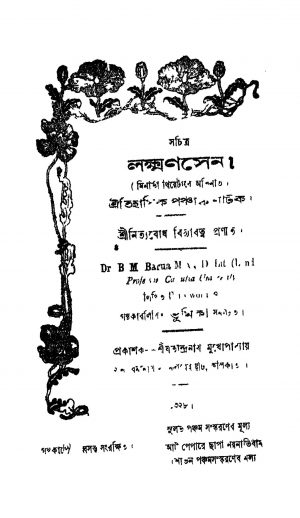For Complaints/Suggesstions related to this material, please clickHere
বই থেকে নমুনা পাঠ্য (মেশিন অনুবাদিত)
(Click to expand)( 13.) style. It*has enriched the vocabulary of our language.
It has added tothe volume of our literary treasures
by introducing many new types of composition e. g.,
novels, epics in blank verse, dramas and sonnets, with
the result that Bengali has come to occupy the fore-
most place among modern vernacular literatures of
India. The under-current of patriotism has risen to
the surface in the genial flow of devotional songs, with
undulations and onrush foreign to its nature. We are
sick with the drum-beats reverberating through the
patriotic outbursts of Rangalal, Hem Chandra and
Nabin Chandra Sen. As regards the dramas, the
satires and farces of Michael Madhusudan, they are
crude in form and found lacking in seriousness. In the
“Nil Darpan” we find our national honour at stake
under the terrible oppression of the European indigo
planters, and we find Bengali patriotism aSserting itself
with its wounded pride. But the expression which this
patriotism finds here is not exactly Bengali. As this
age closes, the attention of the Bengali writers seems
‘gradually to be directed to the devotional traditions
ofthe earlier era, with the result that the patriotic
exuberance came to be toned down and deepened
into the soul-stirring invocation of the motherland,
conceived asa goddess. Sir Rabindra Nath Tagore is
at once the child of the passing and the harbinger
of the coming age, or rather of the age which has come.
That he is the connecting link between the old age ৪9
the new can be brought home by placing side by side
his famous song “efx ভুবনমনোমোহিনি” with Bankim
Chandra’s “বন্দে মাতরম্" and D. L. Roy's “erqratey Sa" |

